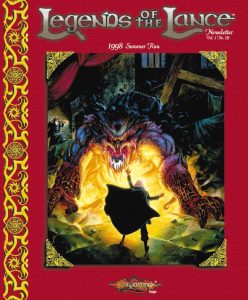
Tactical Studies Rules, better known as TSR, was the company that originally published Dungeons & Dragons, the game that defined the tabletop role-playing genre and became a cultural phenomenon. While its impact on gaming is undeniable, the company itself struggled with a series of financial, managerial, and strategic missteps that ultimately led to its downfall. By 1997, TSR was drowning in debt and was acquired by Wizards of the Coast, marking the end of an era. Understanding why TSR failed requires looking at a combination of leadership conflicts, financial blunders, legal entanglements, and increasing competition from other game publishers. The company’s rise and fall offer a compelling lesson in how creative vision and business strategy must align for long-term success.
TSR was founded in 1973 by Gary Gygax and Don Kaye, with the goal of publishing Dungeons & Dragons, a game that blended wargaming with role-playing in a way that had never been done before. The company’s early days were filled with excitement, and as word spread about this innovative new game, sales skyrocketed. However, Kaye’s unexpected death in 1975 changed the course of TSR’s leadership. To keep the company financially stable, Gygax brought in Brian Blume and his father Melvin as investors. This decision would later create significant internal struggles, as the Blume family gained increasing control over TSR while Gygax remained the public face of the company and the driving creative force behind D&D.
As the game grew in popularity, TSR expanded its offerings rapidly, releasing additional rulebooks, adventure modules, and expansions. The company also made a significant push into novel publishing, with book series like Dragonlance and the Forgotten Realms proving wildly successful. The demand for D&D products continued to rise, and TSR rode this wave of success, reaching millions of players around the world. However, the company’s internal management issues, financial recklessness, and failure to adapt to a changing market set the stage for its eventual collapse.
One of the primary factors in TSR’s downfall was its unstable leadership. The relationship between Gygax and the Blumes grew increasingly strained over time. While Gygax was focused on expanding D&D’s reach, including pursuing film and television deals, the Blumes were more interested in consolidating power within the company. This internal conflict led to Gygax being sidelined as the Blumes took control of the company’s operations. In 1985, after a power struggle that had been brewing for years, Gygax was forced out of TSR entirely when Lorraine Williams, a businesswoman with no background in tabletop gaming, acquired controlling interest in the company.
Williams’ tenure as TSR’s leader was one of the most controversial periods in the company’s history. While she had a strong business background, her understanding of the gaming industry and the culture surrounding it was limited. One of the most significant changes she implemented was an aggressive stance on intellectual property protection, leading to TSR becoming notorious for threatening legal action against fans, hobbyists, and third-party content creators who were using D&D-related material without permission. This alienated many in the gaming community and damaged TSR’s reputation among its most loyal customers.
Another misstep under Williams’ leadership was an unsustainable expansion strategy. TSR flooded the market with an overwhelming number of products, including multiple campaign settings, splatbooks, and rule supplements. While some of these were successful, many failed to gain traction, leading to excessive inventory buildup. The company was producing more material than it could sell, tying up resources in unsold products. This overproduction put enormous strain on TSR’s finances, as printing and distribution costs mounted while actual sales could not keep up.
TSR also failed to properly navigate the changing landscape of the gaming industry. In the early days of D&D, the company had little competition, but by the mid-1980s and into the 1990s, other game publishers had entered the market. Games like RuneQuest, Shadowrun, and White Wolf’s World of Darkness series provided players with alternatives that offered different mechanics and storytelling approaches. These competitors were often more focused in their product releases, while TSR continued its strategy of saturating the market. As a result, TSR’s offerings began to feel inconsistent and diluted compared to the competition.
Beyond competition, the company was also burdened by external challenges such as the moral panic surrounding D&D in the 1980s. Accusations that the game promoted Satanism, witchcraft, and violence led to widespread negative media coverage and public scrutiny. Religious groups and concerned parents pressured schools and communities to ban the game, and some retailers even refused to stock D&D products. While this controversy did not kill the game, it certainly hurt sales and created additional financial stress for TSR at a time when the company was already struggling.
One of the most devastating blows to TSR came from its mismanagement of the business side of game publishing. The company had a habit of overprinting products, leading to warehouses full of unsold books and game materials. This created severe cash flow problems, as money was being spent on manufacturing and storage without an adequate return on investment. Additionally, TSR’s distribution model became a burden rather than an advantage. Instead of relying on third-party distributors, TSR attempted to build its own distribution network, which proved to be an expensive mistake. The company lacked the infrastructure and experience to effectively manage such a system, resulting in logistical nightmares and lost revenue.
TSR also failed to recognize the growing importance of the emerging digital gaming market. By the 1990s, computer role-playing games were becoming increasingly popular, with titles like Ultima and Baldur’s Gate capturing audiences that might have otherwise been drawn to traditional tabletop RPGs. While TSR made some attempts to enter the digital space, its efforts were disorganized and largely unsuccessful. The company did not fully grasp how to integrate computer gaming into its business model, allowing competitors to take the lead in an area that would soon become a major part of the gaming industry.
Another major financial disaster was TSR’s licensing agreements. The company engaged in numerous licensing deals, including partnerships with toy companies, novel publishers, and television studios. Some of these ventures were profitable, such as the Dungeons & Dragons cartoon, but many were financial drains. The legal entanglements surrounding these agreements often resulted in expenses that outweighed any potential benefits. Additionally, TSR’s inability to effectively monetize its intellectual properties meant that even when the company had valuable assets, it struggled to turn them into sustainable revenue streams.
By the early 1990s, TSR was in serious financial trouble. The company’s debts continued to grow, and its leadership made increasingly desperate moves to stay afloat. One of the more infamous decisions was the practice of requiring distributors to buy large quantities of new releases in order to stock popular existing products. This alienated many distributors and retailers, leading to a decline in sales and further compounding TSR’s financial woes. At the same time, the company continued to churn out an overwhelming number of books and game supplements, many of which had little appeal to the core audience.
In 1997, the situation reached a breaking point. TSR was unable to pay its printing and distribution costs, and the company was on the verge of bankruptcy. It was at this moment that Wizards of the Coast, flush with cash from the massive success of Magic: The Gathering, stepped in to acquire TSR. With the purchase, Wizards not only took over the Dungeons & Dragons brand but also assumed responsibility for clearing up the financial mess left behind by TSR’s years of mismanagement. Under Wizards of the Coast, D&D was revitalized, leading to the release of the highly successful third edition in 2000 and later paving the way for the game’s continued dominance in the tabletop RPG market.
TSR’s failure was the result of a perfect storm of factors. Leadership struggles, poor financial decisions, overproduction, legal entanglements, and an inability to adapt to a changing market all contributed to the company’s downfall. While its early years were defined by groundbreaking innovation, its later years became a cautionary tale of how success does not guarantee longevity if a company fails to manage its business effectively. Despite its collapse, TSR’s legacy remains intact. It laid the foundation for modern role-playing games, introduced millions of players to the world of fantasy adventure, and left behind a cultural impact that continues to be felt in gaming, literature, and entertainment. Today, Dungeons & Dragons thrives under Wizards of the Coast, but the lessons from TSR’s mistakes still serve as a reminder that even the most revolutionary companies can fail if they lose sight of sound business principles.






